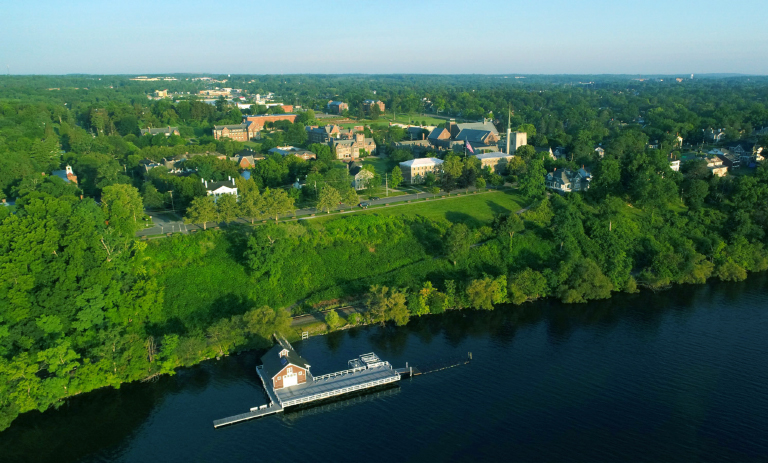HWS & FLCC Articulation Agreement
Recognizing the academic preparation and achievements of FLCC students, HWS and FLCC have entered into an articulation agreement that ensures a streamlined process for evaluating transfer credit and choosing a course of study at HWS.
TRANSFER AND GPA REQUIREMENTS
- Students must have a minimum of a 2.70 cumulative grade point average for acceptance to Hobart and William Smith.
- Individual courses in which the student earned a grade of C- (1.70) or higher will transfer for credit toward HWS graduation requirements.
- Any student who transfers to HWS having completed their General Education requirements at FLCC will receive credit for our General Education requirements.
- Any student who transfers to HWS having completed a General Education course at FLCC will receive credit for the equivalent General Education goal at HWS.
- If a student has finished an Associate degree at FLCC, they will have completed their General Education requirements.
- Students who complete an Associate of Arts degree or Associate of Science degree at FLCC and who have followed the recommended guidelines as stated below may enter Hobart and William Smith at junior status. However, depending on intended major and previous program of study, it may not be possible to complete a bachelor’s degree in two years.
TRANSFER GUIDELINES
To earn a degree at Hobart and William Smith, a transfer student must pass minimally 16 courses at Hobart and William Smith with a minimum cumulative GPA of 2.0. Students must pass at least 28 courses (between FLCC and HWS) with a grade of C- or higher, and take at least 30 full-credit courses prior to graduation. A minor or a second major must be completed in addition to the primary HWS major. In addition, candidates for the bachelor’s degree must address each of Hobart and William Smith’s integrated and aspirational goals:
- The essential skills which serve as a foundation for effective communication
- The essential skills which serve as a foundation for critical thinking and argumentation
- The ability to reason quantitatively
- An experiential understanding of scientific inquiry
- A critical and experiential understanding of the artistic process
- A critical understanding of social inequalities
- A critical understanding of cultural difference
- An intellectual foundation for ethical judgment as the basis for socially responsible action
Upon enrollment, transfer students will meet with a HWS dean and a faculty advisor to decide which courses (FLCC and HWS courses) address these goals. Aspirational Goals 3-8 underscore the imperative of a liberal arts education to provide a breadth of knowledge and the means to express that knowledge effectively. Integrated goals 1 and 2 (effective communication and critical thinking) are embedded in the curriculum through First-Year Seminars, a writing-enriched curriculum, and the senior capstone experience. Transfer students (with guidance from the Deans and faculty advisors) will use other courses to satisfy the First Year Seminar portion of these integrated goals.



